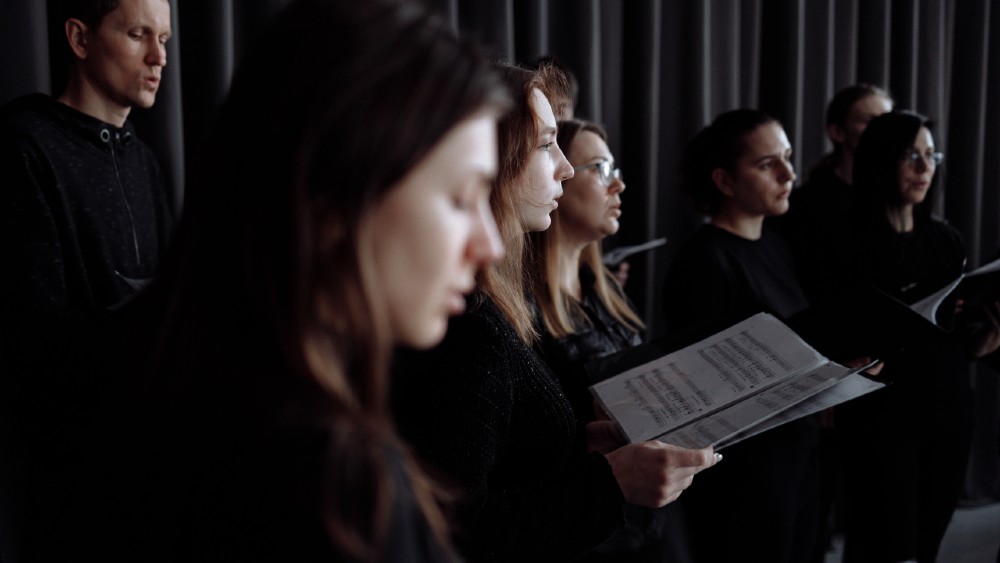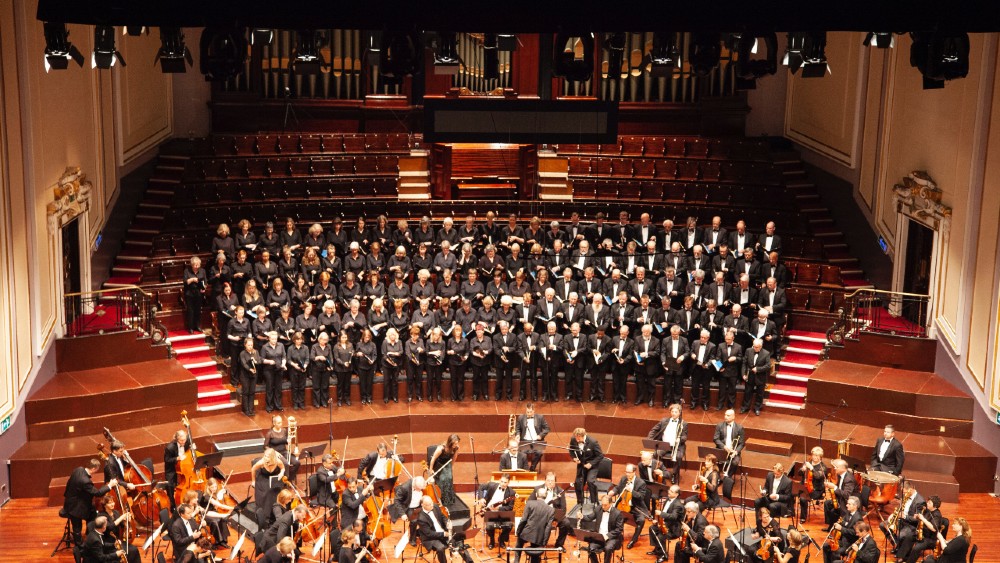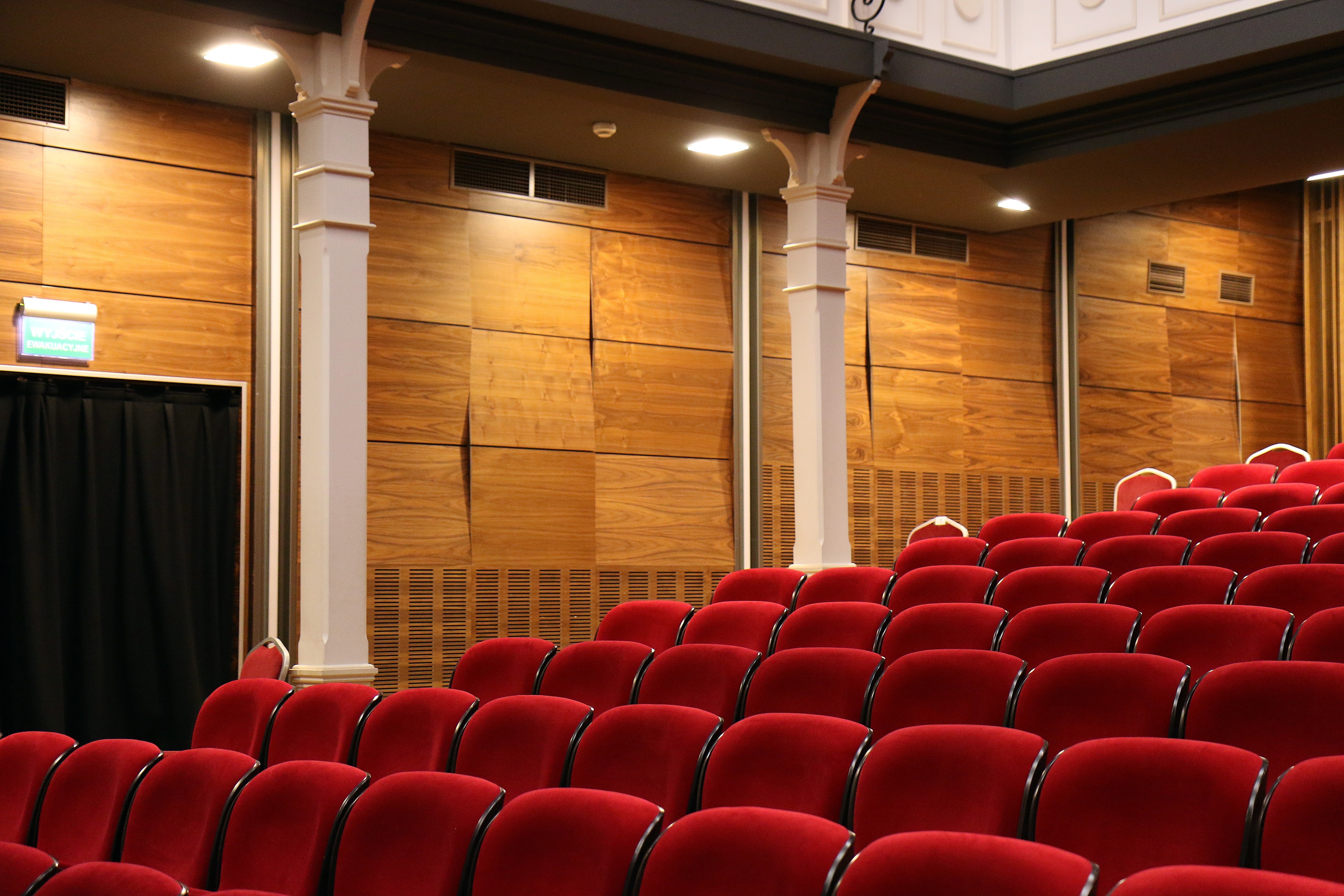
We did it, everyone. We've finally made it to the end of this wild year.
And, the good news? Things are starting to look up.
Vaccines are on the way and there's a good chance that choral organizations will return to planning live events again this coming year. Hallelujah!
As we begin to put 2020 and COVID-19 behind us, we will be able to return to some semblance of "normal." However, we can expect some major cultural shifts in community choral organizations along the way. While certainly no one can predict the future, here's what I anticipate is coming in the years ahead.
1. The majority of choral organizations in the U.S. will likely plan to return to live events by fall/winter of 2021.

"Is it safe to sing together yet?" is the new "Are we there yet?" It's the question we have been repeatedly asking since COVID-19 became a reality and it's frustrating as h*ck not getting a clear answer.
While we cannot be entirely rid of the COVID-19 presence or transmission risks, the global distribution of vaccines will likely mitigate the risks to the point that choral organizations begin to feel "safe" planning their live performances again.
According to CNN's vaccine distribution timeline, the entire general population in the U.S. most likely won't get access to the vaccine until after April. On the other hand, at-risk adults and other targeted groups could get the vaccine much earlier.
As the year goes on and more and more people get the vaccine, I imagine we'll start seeing more live events take place. The exact timeframe for when you will sing together again will depend on your geographic area, the demographics of your members and your audiences, your own risk tolerance as an organization and as individuals, your local government restrictions, as well as any changes in the vaccine distribution timeline.
So, in short, we're not there yet but we'll be there soon.
My best guess is that a majority of choruses will plan to return to their "normal" programming in the fall/winter of 2021 though still likely with some safety precautions in place (more on that below). This is a bold assumption only based on my conversations with choral organizations and some informal and rudimentary data analysis. This assumes no other global catastrophes or new strains that would make it impossible to return to live events and this does not take into account your own individual and organizational risk assessments which, as I've already mentioned, will vary greatly. It is simply an estimate to help us see an end in sight and begin to plan our return to live events.
2. Choruses will shift almost entirely to touchless payments.
Arts organizations have already been trending towards touchless payment models for quite some time now. This means collecting online member payments, soliciting online donations, and selling tickets online — without ever having to physically exchange currency.
Yet still, some organizations have held out on making this change, insisting on collecting cash and checks "at the door." For better or for worse, COVID-19 has given us the perfect excuse (or kick in the butt!) to finally make that shift to digital.
We will continue to see arts organization implementing these touchless payment models and a growing portion of their revenue will be processed online in the coming years.
3. Choruses will implement more lenient absence and sick policies for their members.
Generally speaking, in community choral settings and in the past, singers have erred on the side of "coming" instead of "caution" when it comes to attending rehearsals and performances while they are sick.
Choral leaders have perhaps encouraged or reinforced that behavior and culture through our less-than-lenient attendance and sick policies (or even through a sassy side-eye when that one singer doesn't show again!). If you read our member handbooks, you might see something along the lines of, "if you are sick, please come to rehearsal but rest your voice and sit in the back." (Guilty.)
COVID-19 has forced us to develop an acute awareness of how viruses are transmitted — we seem to know more about this topic than ever before. (Be honest, did any of you even say the word "aerosol" before COVID-19? Now, it's in every sentence!)
Because of this newfound awareness (and maybe a little fear), I expect that choruses will implement more lenient and cautious sick policies for their singers in the long-term. We will likely encourage more singers to stay home and, hopefully, provide those sick singers with additional resources to learn their music.
4. Choruses will continue to offer virtual learning options for their singers.
We've learned so many new technical skills during this pandemic! Most of us now know how to run online rehearsals, how to create virtual learning tracks for our singers, and even how to edit videos.
I expect that we will utilize this technical experience in new and creative ways moving forward. For example, now you might choose to implement video recordings or livestreams of every rehearsal so that absent singers can see what they missed. You might even completely shift to hybrid in-person/virtual rehearsals, giving singers a choice in how they participate and making rehearsals more accessible than ever before.
Plus, say goodbye to "snow days"! Now that we all know how to run a virtual rehearsal, we'll be able to pivot quickly into virtual rehearsal mode during emergencies in which we can't get our singers to the rehearsal venue.
5. Choruses will expand their programming to include virtual concerts in some form.
In pre-COVID days, we have perhaps considered livestreaming or recording our performances for distribution online. But two things have often held us up: the technical know-how and the expenses associated with them (such as copyright, recording equipment, and union fees).
During this pandemic, many of us have already had to overcome the technical barrier to planning recorded performances — perhaps you have already produced a livestream event in lieu of a live performance. Having tackled it once or twice now, doing it again should be a piece of cake!
While the expenses have not entirely gone away, there are some changes that will help make livestreams more affordable. One such change is that some concert venues and arts organizations have been forced to purchase their own recording and livestreaming equipment for their virtual programming this year. With more organizations equipped and ready for virtual performances, it should make it that much easier to plan these types of events moving forward.
Union musicians and publishers have also had to be somewhat flexible with their fees during the pandemic. It's unclear whether there will be this level of flexibility for future events. But, perhaps there were some lessons learned along the way that can help us co-produce online content in a fair and cost-effective way.
6. Choruses will continue to apply safety and sanitation measures for live events.
We know that not everyone will get the COVID-19 vaccine, so we know there will be some health and safety risks for live events moving forward. There always have been, of course, but now we are especially aware of them!
In the long-term, I expect that arts organizations will continue to implement reasonable safety and sanitation measures at live events such as improving HVAC systems, crowd control, and cleanings of surfaces. In the short-term, choruses may also choose to take more rigorous precautions such as continuing to wear masks, social distancing audience members and singers, shortening programming times, closing bathrooms, staggering check-in times, and the like.
7. Choruses can expect mixed turnouts in audience numbers and potentially a shift in audience demographics in the short-term.

Audience members have never exactly clawed their way through the doors to get into our choral concerts before. But people are getting antsy and going a little stir-crazy just waiting to get back out into the world.
There's going to be a point this year where live events are hotter than they've ever been. That point will likely be when vaccine distribution reaches a critical threshold and mass gathering restrictions lift. Choruses should be able to use the public's excitement to their advantage in their ticket sales and marketing strategies and generate some decent revenue from this.
However, choruses might see something entirely different especially if their audience demographics skew more towards the COVID-19 at-risk categories. On the one hand, at-risk persons should be able to get their vaccines earlier on this year, so they may be feeling ready to return to live events much sooner than others. However, they also might be more reticent to return to live events simply because they are categorized as "at-risk" even with the vaccine in place. It is also possible that because of these considerations, that the demographics of our audiences actually begin to shift and skew more towards persons that are not categorized as "at-risk."
This is completely unpredictable, but I think we will see a little bit of all of the above.
8. Choruses will investigate and implement better DEI and justice initiatives.
I would be remiss if I didn't mention the light that 2020 shone on racial injustices in this country. This year, the choral industry had important conversations about systemic and structural racism. Many of our organizations have either earnestly continued or only just embarked on a self-discovery journey to understand our contributions to this.
We will, and should, continue to see more dedicated efforts of individual arts organizations and artists to implement better DEI and justice initiatives. I expect, and sincerely hope, that we will continue to look at our practices, consider how we've contributed to this problem, and put an action plan in place to help us move forward towards a more equitable world.
9. We will all have more appreciation for our art form and each other.
A year of isolation can really change a person. It can change your perspective on what's important in life and it can make you miss things that you didn't even know you would miss. Live musical events are something that many people are realizing they're missing but perhaps had never fully appreciated their value until this moment. I hope that the general public comes away from this pandemic with a new sense of appreciation for the musical arts and continue to engage more with artists in their communities.
And finally, if you don't come out of this with a solid appreciation for your fellow singers in choir, then I can't help you! Just kidding. But seriously, I think we'll all probably cry and hug a lot when we finally return to live rehearsals again. I miss you all. And I sure as h*ck appreciate you all now more than ever. I hope you feel the same.
Bring on the new year!

Tori Cook is the former Director of Sales & Marketing at Chorus Connection, an active board member of the Greater Boston Choral Consortium, and a soprano with the Tanglewood Festival Chorus. In a past life, she was the Music Director of the Harborlight Show Chorus and President of Chorus pro-Musica. When not making music, she daydreams about adopting a golden retriever puppy and scuba diving to exotic locations around the world.

